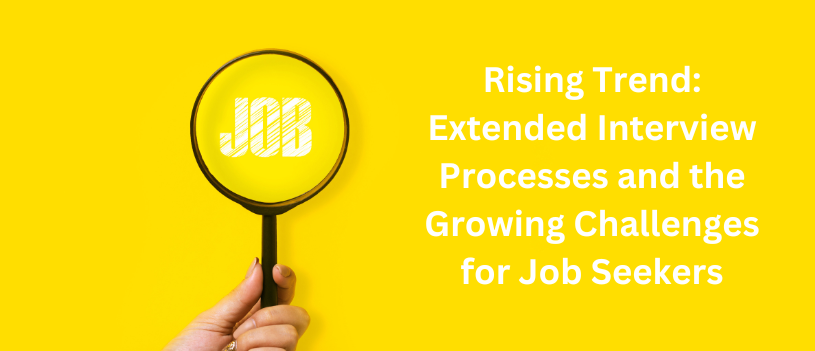Summary:
Job seekers are facing an increasing trend of extended and exhaustive interview processes, with some candidates experiencing up to nine interviews for a single position. This trend has become more prevalent over the past year, frustrating applicants. The prolonged hiring procedures are attributed to the highly competitive job market, economic uncertainty, and the desire for companies to ensure they make the right hiring decisions from the outset.
Lengthy Interview Processes on the Rise:
Job seekers are reporting a significant increase in the number of interview rounds, making the hiring process more extensive and challenging.
The extended interviews include multiple rounds with different stakeholders, written case study exercises, and final interviews with top executives.
Average Time-to-Hire Reaches All-Time High:
A June report from the Josh Bersin Company and AMS reveals that the average time-to-hire rates for the first quarter of 2023 reached an “all-time high,” with the recruitment process taking an average of 44 days. The prolonged hiring timelines are observed across various industries.
Factors Driving Extended Interviews:
The job market’s competitive nature, coupled with the rise of remote work, has led companies to be more cautious and thorough in evaluating candidates.
Economic uncertainty has increased anxiety for companies, leading them to adopt longer interview processes to ensure they make informed hiring decisions.
Some companies aim to eliminate bias and create a more equitable hiring landscape by collecting more data through comprehensive interview evaluations.
Reasons Behind Prolonged Interviews:
Experts suggest that the lack of clarity in companies about the role they want to fill, or delays in receiving approval to hire, contribute to the unnecessary steps in the interview process.
Recruiters, at times, may not have a clear understanding of the role, leading to a haphazard addition of interview stages, resulting in a poor candidate experience.
Challenges for Job Seekers:
Applicants often find the extended interview processes draining and express frustration over the lack of clarity regarding compensation and the overall process.
The prolonged timelines also contribute to delays in receiving feedback from companies, leaving candidates in limbo.
Conclusion:
The prolonged interview processes are indicative of the challenges posed by the current job market, requiring companies to be meticulous in their hiring decisions. While the extended evaluations aim to ensure fairness and eliminate bias, it is crucial for companies to strike a balance that respects candidates’ time and maintains an efficient hiring process.
Job interviews are getting longer — here’s why it could be a red flag (cnbc.com)
